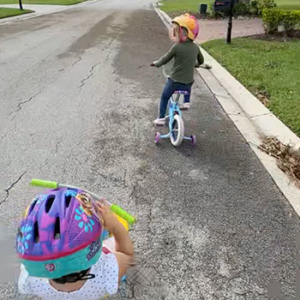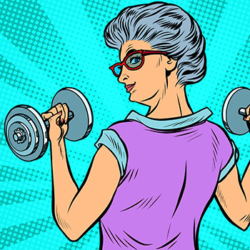Over the past decade, obesity rates among young people have risen significantly. Theories now are that more and more baby boomers could outlive their children. More Americans are getting heavier earlier in their lives and carrying the extra pounds for longer periods, suggesting that the impact on chronic disease and life expectancy may be worse than we initially thought.
According to the CDC, in a study from 2017-2020, obesity among children and adolescents was 19.7%.
 As a parent, my children’s health is one of the most important things. The idea of them getting sick or hurt in sports is always in the back of our minds, but sometimes, we focus too much on current events and forget about the long road ahead. Thanks to greater public awareness and national campaigns, like NFL Play 60, or the Boys and Girls Club, they are working on getting kids active and eating better.
As a parent, my children’s health is one of the most important things. The idea of them getting sick or hurt in sports is always in the back of our minds, but sometimes, we focus too much on current events and forget about the long road ahead. Thanks to greater public awareness and national campaigns, like NFL Play 60, or the Boys and Girls Club, they are working on getting kids active and eating better.
The major players in this epidemic are eating patterns, physical activity levels, and sleep routines.
Shared family behaviors like being inactive in combination with consuming more foods and beverages high in fat, sugar, and calories are the main culprits. Their diets are most likely low in vitamins, minerals, and other vital nutrients. At the same time, many children spend less time outdoors and more time indoors, being inactive. Videogames, tablets, and smartphones continue to grow in popularity, and the number of screen hours will only increase. And you know this is real when you hear parents lead with, ‘screen time is restricted to an hour a day in our house.’
 So, how do we help our kids?
So, how do we help our kids?
Own the fact that the people most dramatically impacting a healthy child’s outcome are us, parents. Parents have a direct effect on childhood obesity. The most important thing you can do to help your child is gradually change your family’s physical activity and eating habits. Be realistic about your goals. Creating new behaviors doesn’t happen overnight, and we are, after all, creating healthy behaviors for the long term.
- Lead by example: if your children see you physically active and having fun, they’re more likely to be active and stay active for the rest of their lives.
- Plan Family activities: taking a family walk, bike ride, or swim can significantly benefit everyone in the group. Getting sunlight and fresh air can improve health and wellness for all.
- Be understanding of your child’s needs: help them find an activity that is fun and isn’t too difficult. It can discourage them if they aren’t enjoying their time doing it. Some kids will be more inclined towards team sports, but not everyone will be in that headspace.
- Take a break from screens: Make an effort to reduce the time everyone spends doing stationary activities. Replace that reduction in screen time with more mom and dad or even sibling time.
- Make healthier food options available in the household. It will give them ownership of their own healthy food choices.
- Get the kids involved when it comes to cooking and preparing meals. It can teach them about nutrition and give them a feeling of accomplishment.
- Eat together as a family and not in front of the TV. TV, while eating, often reduces the metabolic rate of processing food efficiently.
- Improved hydration. So often, water consumption where kids are concerned is greatly lacking unless they play a sport. As a parent, you are competing against very savvy marketed packaging of fruit juices, sports drinks, and carbonated fruit waters. Be a home that features water served with meals. Maybe even consider colorful age-appropriate H20 vessels with cool spouts.
- Rest time is critical to the body. Did you know that kids who fell short at least 2 hours of sleep benchmarks were almost twice as likely to be overweight or obese, according to WebMD? Is it a bad idea to model this critical practice so your kids can see that we all need to rest to be ready for the next big adventure? An opportunity for mom and dad to take an occasional nap. Everybody wins with an occasional nap.
Childhood obesity is complex and can lead to lifelong complications. This generation deserves the same quality of life and longevity that previous generations have enjoyed.
 Sometimes it can be a good thing to compare, especially when discussing health.
Sometimes it can be a good thing to compare, especially when discussing health.
What can our parents and grandparents share about how they experienced childhood, other than walking uphill 5 miles to school in the blistering heat or treacherous snowfalls? Let’s take this opportunity to improve life quality and communication between generations. There is much to be shared and learned from this best practice.
It’s important to support your kids no matter their weight. Instead, continue to focus on healthy habits and encourage them by explaining why you would want them to stay healthy.
All images posted here are of my family…I’m a lucky guy!
January 2023

 So, how do we help our kids?
So, how do we help our kids? Sometimes it can be a good thing to compare, especially when discussing health.
Sometimes it can be a good thing to compare, especially when discussing health.


